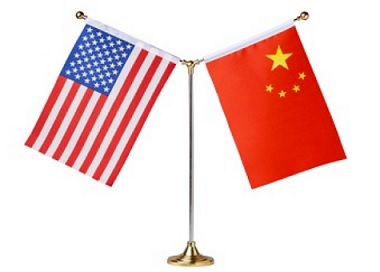
The U.S. stock market fell 5% this week when the Chinese currency, the yuan, hit a record low. What is going on in this trade dispute?
China was approved into the World Trade Organization (WTO) in 2001, allowing them access to free trade with the largest economies in the world. At the time, U.S. President Bill Clinton claimed that, “now we will be able to sell cars, have distribution there, open up telecommunications, lower their tariffs, and a hundred other favorable deals for us. Plus, it will make them more democratic and capitalist.” None of this occurred. Instead, China has stolen intellectual property, illegally dumped goods in the U.S., and the communist leaders still control their economy. The net result has been 4.5 million jobs leaving the U.S. for China, along with zillions of dollars in trade deficits.
Since 2001, not a single country or U.S. President has pushed back on China’s illegal and damaging behavior. That is, until President Trump. Trump has slowly been ratcheting up rhetoric and tariffs against China to level the playing field and force them into a fair and accountable trade agreement. Since China hasn’t been forced to back down in the last 18 years, they are not inclined to now, setting an unfavorable precedent. China is using every negotiating trick in their book in return – walking out of meetings, increasing tariffs on U.S. goods, and this week, lowering the yuan. This currency manipulation (which is also illegal) meant that China has more economic weapons they are willing to employ to avoid a Trump trade deal. Lowering the yuan could be a repeat of 2015 when other Asian countries were forced to lower their currency as well to keep their economic growth on track.
It is impossible to predict whether there will be some kind of trade deal and how that will impact Americans. For example, someone may have to pay an extra $2 tariff for a Chinese made shirt, however, the drop in the yuan may be $2 so the net effect may be zero on some items. (Although today for example, one of the U.S. tariffs is 25% and is only offset by a 5% drop in the yuan).The largest impact could be a reduction in the relentless intellectual property theft and counterfeiting out of China, boosting the economy of the U.S., Europe, India, etc. What is important to keep in mind is that any trade deal is a long-term game and worth any short-term volatility to get to a fair trade deal, for the first time, with China. While some business pundits whine over a Trump tweet during stock market trading hours that results in a few million temporarily lost, they should instead focus upon the result of the trade deal which will impact trillions of dollars and millions of jobs for generations.
